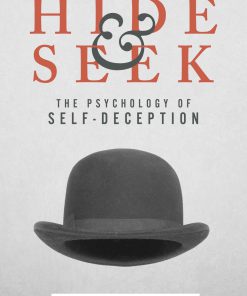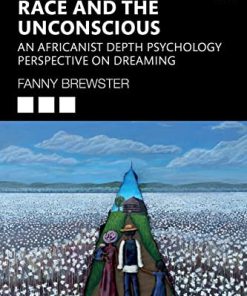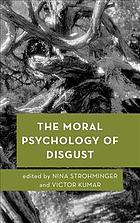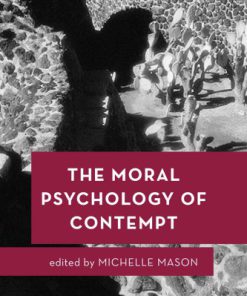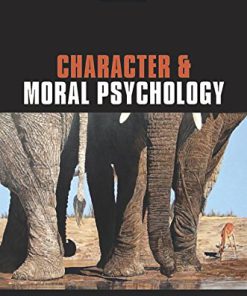The Nietzschean self moral psychology agency and the unconscious 1st Edition by Paul Katsafanas 0191056901 9780191056901
$50.00 Original price was: $50.00.$25.00Current price is: $25.00.
The Nietzschean self : moral psychology, agency, and the unconscious 1st Edition by Paul Katsafanas – Ebook PDF Instant Download/Delivery: 0191056901, 9780191056901
Full download The Nietzschean self : moral psychology, agency, and the unconscious 1st Edition after payment
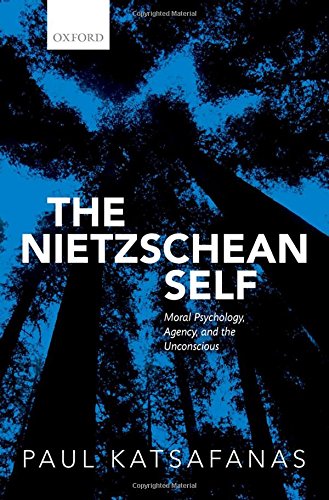
Product details:
ISBN 10: 0191056901
ISBN 13: 9780191056901
Author: Paul Katsafanas
Nietzsche’s works are replete with discussions of moral psychology, but to date there has been no systematic analysis of his account. How does Nietzsche understand human motivation, deliberation, agency, and selfhood? How does his account of the unconscious inform these topics? What is Nietzsche’s conception of freedom, and how do we become free? Should freedom be a goal for all of us? How does–and how should–the individual relate to his social context? The Nietzschean Self offers a clear, comprehensive analysis of these central topics in Nietzsche’s moral psychology. It analyzes his distinction between conscious and unconscious mental events, explains the nature of a type of motivational state that Nietzsche calls the ‘drive’, and examines the connection between drives, desires, affects, and values. It explores Nietzsche’s account of willing unity of the self, freedom, and the relation of the self to its social and historical context. The Nietzschean Self argues that Nietzsche’s account enjoys a number of advantages over the currently dominant models of moral psychology–especially those indebted to the work of Aristotle, Hume, and Kant–and considers the ways in which Nietzsche’s arguments can reconfigure and improve upon debates in the contemporary literature on moral psychology and philosophy of action.
The Nietzschean self : moral psychology, agency, and the unconscious 1st table of contents:
1. Introduction
1.1 Psychology as the Path to the Fundamental Problems
1.2 Competing Accounts of Moral Psychology
1.3 Outline of the Book
2. The Unconscious
2.1 Distinguishing Various Threads in the History of the Concept
2.2 Nietzsche on the Conscious/Unconscious Divide
2.3 Why Align the Conscious/Unconscious Distinction with the Conceptual/Nonconceptual Distinction?
2.4 Conclusion
3. Consciousness as Superficial and Falsifying
3.1 Consciousness is Superficial
3.2 Consciousness is Falsifying
3.3 Critiques and Refinements
3.4 Conclusion
4. Drives
4.1 Interpretations of Nietzschean Drives
4.2 A Highly Abbreviated History of the Drive Concept
4.3 The Nature of Nietzschean Drives
4.4 The Relationship between Drives and Affects
4.5 Conclusion
5. Values
5.1 Drives and Values
5.2 Affects and Values
5.3 Drives Explain Values
5.4 An Objection to the Account
5.5 The Continuity between Drives, Affects, and Values
5.6 Drives, Consciousness, and Conceptualization
5.7 Conclusion
6. Willing without a Will
6.1 The Development of Nietzsche’s Account of Willing
6.2 Kantian Models of the Will
6.3 Can Reflection Suspend the Influence of Motives?
6.4 Nietzsche on the Role of Conscious Thought
6.5 Nietzsche’s Model of Willing
6.6 Conclusion
7. The Unified Self
7.1 The Philosophical Role of the Concept of Unity
7.2 Nietzsche and Plato on the Unified Agent
7.3 Schiller on Unity as Harmony
7.4 An Analysis of Nietzschean Unity
7.5 Is Nietzschean Unity an Adequate Account of Genuine Agency?
7.6 Conclusion
8. Self, Culture, and Society
8.1 Nietzsche on the Self
8.2 The Unified Self
8.3 The Individual’s Relationship to Society
8.4 Nietzschean Selfhood as Authenticity
8.5 Conclusion: From Authenticity to Autonomy
9. The Free Individual
9.1 Current Interpretations of Nietzschean Freedom
9.2 Freedom as Self-Determination
9.3 The Standards Employed by the Autonomous Agent
9.4 Nietzsche’s Solution to the Problem of Normative Authority: Freedom, Self-Understanding, and Will to Power
9.5 Conclusion
10. Nietzschean Moral Psychology and its Competitors
10.1 The Lockean/Kantian Account
10.2 Humean Accounts
10.3 Aristotelian Accounts
10.4 Conclusion
People also search for The Nietzschean self : moral psychology, agency, and the unconscious 1st:
what is self according to churchland
nietzsche self
nietzsche self creation
nietzsche self overcoming
nietzsche self control
Tags: The Nietzschean self, moral psychology, agency, the unconscious, Paul Katsafanas
You may also like…
Politics & Philosophy
Relationships & Lifestyle - Relationships
Hide and Seek The Psychology of Self Deception 1st edition by Neel Burton 1913260232 978-1913260231
Uncategorized
Relationships & Lifestyle - Diet & Nutrition
Cookbooks
Politics & Philosophy - Anthropology
History & Research
Unconscious Intelligence in Cybernetic Psychology 1st Edition Hansen
Politics & Philosophy - Anthropology
Character and moral psychology 1st Edition Miller 0191022659 9780191022654
Relationships & Lifestyle - Diet & Nutrition





